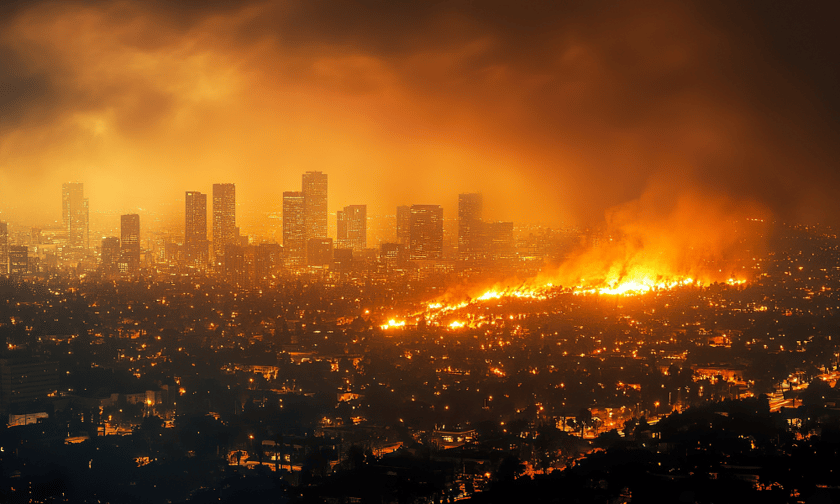

As Los Angeles-area residents recover from one of the costliest natural disasters in US history, California’s insurer of last resort is entering another wildfire season with strained reserves. That raises the prospect that state residents may have to help cover future losses.
According to a Bloomberg report, the California FAIR Plan last month ordered member insurers—including State Farm, Allstate, and Chubb—to contribute $1 billion to shore up reserves after the Palisades and Eaton fires. The rare financial disclosure revealed that, just three months into 2025, little cash remains if another disaster strikes.
The January wildfires destroyed or damaged thousands of homes and businesses across Los Angeles County, forcing evacuations and causing billions in losses. The Palisades Fire spread rapidly through hillside neighborhoods, while the Eaton Fire scorched dry terrain in Pasadena, fanned by strong winds. Officials estimate total damages at around $4 billion, with nearly half of FAIR Plan claims classified as total losses.
“The risk is really clear,” said Sridhar Manyem, head of industry research at AM Best. “Depending on the severity of the next wildfire, there is the possibility of a future assessment.”
Under new state rules, insurers are responsible for FAIR Plan assessments but can seek approval to pass on costs to policyholders. That could mean higher home insurance bills for Californians.
The January fires, unusual for that time of year, came as the state rolled out regulatory changes to address a growing insurance crisis. Carriers have been pulling back from California, citing rising wildfire risk.
State Farm, the state’s largest home insurer, received emergency approval for a 22% rate hike, warning that its losses in Los Angeles threatened both its balance sheet and the broader market.
The FAIR Plan, which provides coverage for high-risk properties rejected by private insurers, holds lower reserves than traditional carriers. A funding gap between its cash on hand and reinsurance obligations has raised concerns about its ability to withstand another major wildfire.
A legal challenge is already forming over last month’s assessment. Consumer Watchdog, a policyholder advocacy group, called it a bailout for insurers and vowed to fight any attempt to pass costs onto customers.
Meanwhile, the state is trying to stabilize the market. Insurance Commissioner Ricardo Lara argued that forcing insurers to absorb all FAIR Plan costs would drive more companies out, making coverage even less accessible.
“The more people forced into an already struggling system, the worse it gets,” said Douglas Quinn of the American Policyholder Association. “These are difficult times for the insurance industry.”
